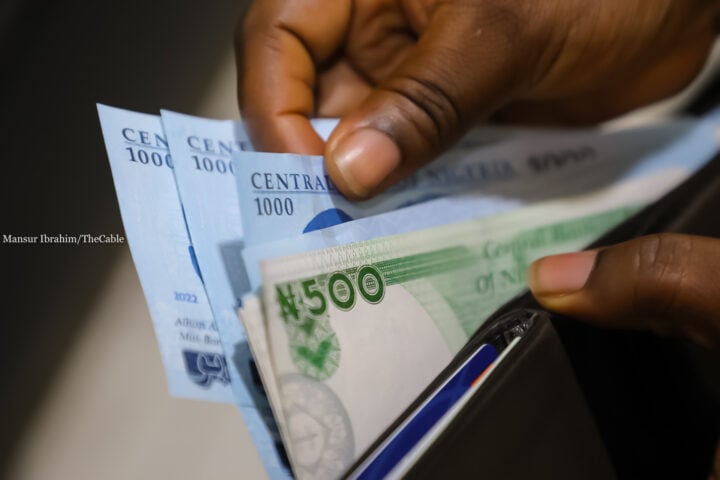BY TIMI OLAGUNJU
Nigeria supplies nearly 40% of the world’s shea nuts but captures barely 1% of the $6.5 billion global shea products market: a development paradox. In response to this paradox, last week, the Federal Government announced a six-month ban on the export of raw shea nuts. The policy’s logic appears straightforward: redirect raw supplies to local processors and position Nigeria as a global hub for refined shea butter, specialty fractions, and skincare ingredients. But development strategy is rarely straightforward.
Moving from raw shea nuts to bulk butter is a relatively short jump, achievable with modest investments in processing equipment, energy infrastructure, and storage. But moving further up the ladder – from bulk butter to premium cosmetic inputs and globally branded products – is a much longer leap. That transition demands ISO 22716 and GMP certifications, REACH and FDA compliance, quality assurance labs, traceability systems, and the marketing muscle required to penetrate high-value global supply chains.
I opine that a blanket ban, on its own, cannot deliver these capabilities. Without complementary investments in standards, finance, and buyer readiness, this policy risks squeezing the incomes of the roughly 8,000,000 rural women who form the backbone of Nigeria’s shea economy, while disproportionately benefiting a handful of politically connected processors who already have access to financing, subsidies, and land allocations.
Advertisement
In its current design, the ban will create winners and losers. Among the likely winners are processors, including newly commissioned facilities such as that in Niger State, which now gain access to guaranteed domestic supply at lower prices. Political elites, too, will celebrate the optics of a ‘pro-jobs’ industrial policy aligned with President Bola Tinubu’s development narrative.
On the other hand, 8,000,000 smallholder women collectors stand to lose if fewer competing buyers depress farm-gate prices, reducing rural incomes unless safeguards are put in place. Independent exporters risk losing foreign clients and may be pushed toward informal cross-border smuggling as buyers turn to other sources to fill supply gaps. There is also the risk of regional instability, as several West African countries, including Burkina Faso, Mali, Togo, Ivory Coast, and Ghana, 5 of the 9 growers in Africa, have adopted similar restrictions, creating a potential ‘race to the bottom’, unless ECOWAS steps in to harmonize policies across the region.
Nigeria has walked this road before. In 1976, it banned the export of raw palm oil in a bid to grow local refining capacity. By the late 1980s, it had become a net importer of the very product it once dominated globally. Ethiopia offers another cautionary tale: in 2012, it banned the export of raw hides and skins to stimulate domestic leather manufacturing. Initially, capacity shortages led to smuggling, collapsing farm-gate prices, and rising unemployment. Only after Ethiopia pivoted to targeted subsidies, industrial parks, and investment in Research and Development did the sector stabilize and grow.
Advertisement
Vietnam, by contrast, charted a different path. Instead of imposing bans, it offered tax incentives, export rebates, and forged strategic partnerships with global giants such as Samsung, Intel, and Unilever. Within a decade, Vietnam transformed itself into a powerhouse in garments, electronics, and cosmetics inputs, without triggering black-market leakages or destabilizing rural incomes. The lesson for Nigeria is clear: a ban without investment in capabilities will not transform it from a raw-material supplier into a competitive manufacturer.
That being said, to be frank ‘without’ being on ‘who wants to be a millionaire’, a blanket ban should be replaced with smarter, market-aligned incentives. A variable export levy, combined with rebates for processors that add domestic value, would create stronger signals without distorting markets unlike a ban. The proceeds from such levies should be reinvested in industrial public goods: power reliability in agri-processing zones, accredited testing laboratories, and programs to unlock access to export markets.
However, since the Tinubu-led administration is determined to pursue this weak policy with the announcement of same, then the ban must be tied to clear performance benchmarks. The federal government should publish capacity milestones showing how much of the seasonal harvest local processors can absorb without depressing farm-gate prices. It must also monitor and report on the incomes of women’s cooperatives to ensure that the livelihoods of rural collectors are protected rather than undermined. Also, the government should launch a “buyer-readiness sprint”, a coordinated effort to secure multi-year offtake agreements with global brands while the ban is in place. Without these follows through, there will be less good tale to come out of the ban.
Protecting rural livelihoods must remain at the heart of the policy. Setting minimum floor prices for nuts purchased from women’s cooperatives, combined with harvest-time microcredit, would shield vulnerable households from income shocks. At the same time, Nigeria needs to accelerate standards compliance by co-financing ISO/GMP certification, REACH/FDA filings, and traceability systems through the Global Shea Alliance in Ghana.
Advertisement
Regional coordination will also be critical. Nigeria cannot act in isolation. With other West African producers enforcing similar restrictions, ECOWAS must urgently establish a Shea Exporters and Processors Council to harmonize pricing, stabilize trade flows, and prevent market distortions caused by smuggling and policy fragmentation.
The six-month shea export ban is problem, but it can become an opportunity, but only if Nigeria treats it as a catalyst to build capabilities, not a shortcut to quick revenues or political optics.
Timi Olagunju is a lawyer and policy expert specializing in emerging technologies and economies. He is an Edward S. Mason Fellow and holds an MPA from Harvard University. He is a Partner at The Timeless Practice (TTP), Lagos and senior advisor at US-Africa Bridge, Arlington. X: @timithelaw
Advertisement
Views expressed by contributors are strictly personal and not of TheCable.









